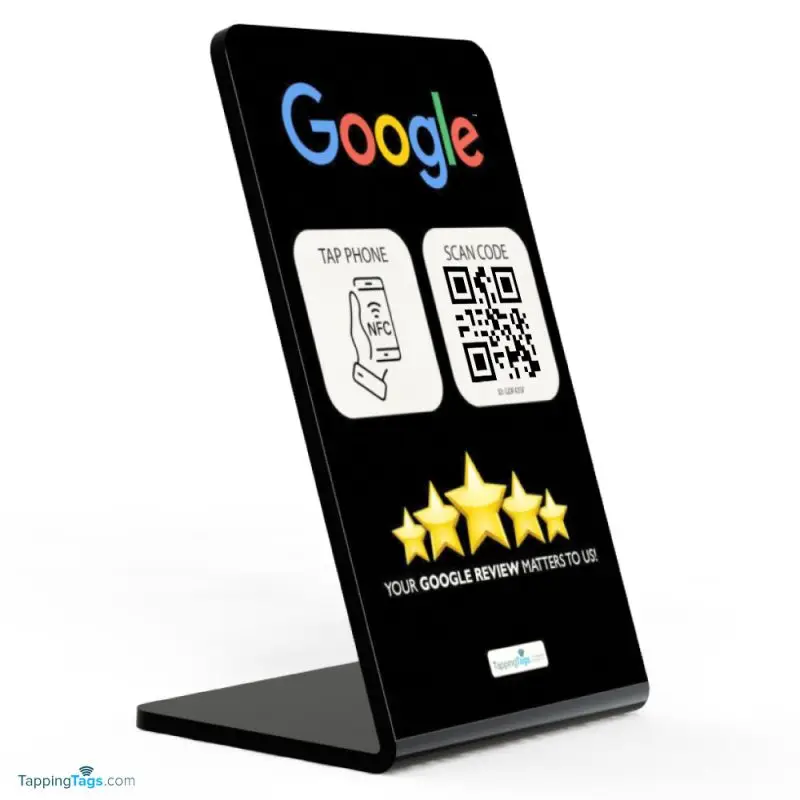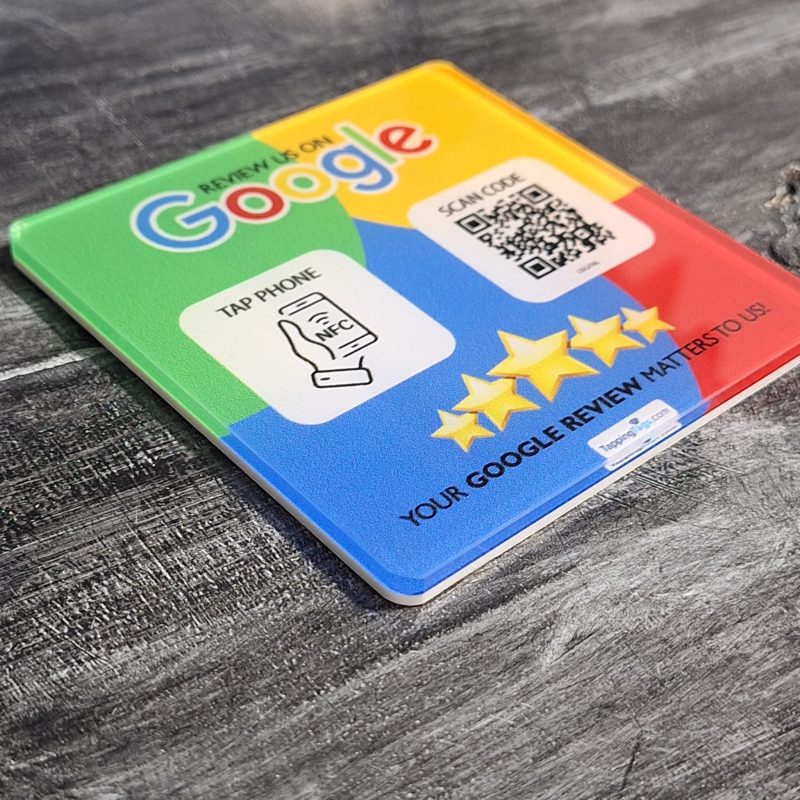Blog
Elevate Your Online Presence with NFC Review Cards
Data Science in Healthcare: Improving Patient Care and Diagnosis
In recent years, the healthcare industry has witnessed a significant transformation, largely driven by advancements in data science. This transformation is not just about adopting new technologies but also about leveraging data to improve patient care and diagnosis. Data science, with its ability to analyze vast amounts of data and extract meaningful insights, has become a cornerstone in modern healthcare. This comprehensive blog post delves into the various ways data science is revolutionizing healthcare, enhancing patient care, and improving diagnostic accuracy.
The Role of Data Science in Healthcare
Understanding Data Science
Data science is an interdisciplinary field that uses scientific methods, processes, algorithms, and systems to extract knowledge and insights from structured and unstructured data. It encompasses a wide range of techniques, including machine learning, statistical analysis, and data mining. In healthcare, data science is used to analyze patient data, predict disease outbreaks, personalize treatment plans, and much more.
The Importance of Data in Healthcare
Healthcare generates a massive amount of data every day, from patient records and clinical trials to medical imaging and wearable devices. This data holds the potential to provide valuable insights that can improve patient outcomes, reduce costs, and enhance the overall quality of care. However, the sheer volume and complexity of healthcare data make it challenging to analyze and interpret without advanced data science techniques.
Applications of Data Science in Healthcare
Predictive Analytics
Predictive analytics involves using historical data to predict future outcomes. In healthcare, predictive analytics can be used to forecast disease outbreaks, predict patient readmissions, and identify high-risk patients. For example, by analyzing patient data, healthcare providers can identify patterns and trends that indicate a higher likelihood of developing certain conditions, such as diabetes or heart disease. This allows for early intervention and preventive care, ultimately improving patient outcomes.
Personalized Medicine
Personalized medicine, also known as precision medicine, tailors medical treatment to the individual characteristics of each patient. Data science plays a crucial role in personalized medicine by analyzing genetic, environmental, and lifestyle data to develop customized treatment plans. For instance, by analyzing a patient’s genetic makeup, doctors can determine which medications are most likely to be effective and which ones may cause adverse reactions. This approach not only improves treatment efficacy but also reduces the risk of side effects.
Medical Imaging
Medical imaging, such as X-rays, MRIs, and CT scans, generates a vast amount of data that can be challenging to interpret. Data science techniques, particularly machine learning, can be used to analyze medical images and detect abnormalities with high accuracy. For example, deep learning algorithms can be trained to identify tumors in medical images, often with greater accuracy than human radiologists. This not only speeds up the diagnostic process but also improves diagnostic accuracy.
Electronic Health Records (EHRs)
Electronic Health Records (EHRs) are digital versions of patients’ paper charts. They contain comprehensive patient information, including medical history, diagnoses, medications, treatment plans, immunization dates, and test results. Data science can be used to analyze EHRs to identify trends, improve patient care, and streamline administrative processes. For example, by analyzing EHR data, healthcare providers can identify patterns that indicate a higher risk of hospital readmission and take proactive measures to prevent it.
Drug Discovery and Development
The process of discovering and developing new drugs is time-consuming and expensive. Data science can accelerate this process by analyzing large datasets to identify potential drug candidates and predict their efficacy. For example, machine learning algorithms can analyze genetic data to identify potential targets for new drugs. Additionally, data science can be used to analyze clinical trial data to identify potential side effects and optimize dosing regimens.
Remote Monitoring and Wearable Devices
Wearable devices, such as fitness trackers and smartwatches, generate a wealth of data related to physical activity, heart rate, sleep patterns, and more. Data science can be used to analyze this data to monitor patients’ health in real-time and detect potential health issues before they become serious. For example, by analyzing data from wearable devices, healthcare providers can identify patterns that indicate a higher risk of heart disease and recommend lifestyle changes or interventions to mitigate the risk.
Challenges and Ethical Considerations
Data Privacy and Security
One of the biggest challenges in healthcare data science is ensuring the privacy and security of patient data. Healthcare data is highly sensitive, and any breach can have serious consequences. Therefore, it is crucial to implement robust security measures to protect patient data from unauthorized access and ensure compliance with regulations such as the Health Insurance Portability and Accountability Act (HIPAA).
Data Quality and Integration
Healthcare data comes from various sources, including EHRs, medical imaging, wearable devices, and clinical trials. Ensuring the quality and consistency of this data is a significant challenge. Additionally, integrating data from different sources can be complex due to differences in data formats and standards. Addressing these challenges requires advanced data integration and cleaning techniques to ensure that the data is accurate, complete, and ready for analysis.
Ethical Considerations
The use of data science in healthcare raises several ethical considerations, including issues related to informed consent, data ownership, and bias in algorithms. It is essential to ensure that patients are fully informed about how their data will be used and obtain their consent. Additionally, it is important to address potential biases in data and algorithms to ensure that the insights generated are fair and unbiased.
Case Studies: Data Science in Action
Predicting Disease Outbreaks
One of the most significant applications of data science in healthcare is predicting disease outbreaks. For example, during the COVID-19 pandemic, data science played a crucial role in tracking the spread of the virus and predicting hotspots. By analyzing data from various sources, including social media, travel patterns, and healthcare records, data scientists were able to identify trends and predict outbreaks, allowing for timely interventions and resource allocation.
Improving Cancer Diagnosis
Cancer diagnosis often involves analyzing medical images to detect tumors. Data science has significantly improved the accuracy and speed of cancer diagnosis. For example, researchers have developed deep learning algorithms that can analyze medical images and identify tumors with high accuracy. These algorithms can detect tumors at an early stage, improving the chances of successful treatment and patient outcomes.
Enhancing Patient Care with Wearable Devices
Wearable devices have become increasingly popular for monitoring patients’ health in real-time. For example, patients with chronic conditions, such as diabetes or heart disease, can use wearable devices to monitor their vital signs and receive alerts if any abnormalities are detected. Data science plays a crucial role in analyzing the data generated by these devices and providing actionable insights to healthcare providers. This allows for timely interventions and personalized care, ultimately improving patient outcomes.
Streamlining Clinical Trials
Clinical trials are essential for developing new treatments and medications, but they are often time-consuming and expensive. Data science can streamline the clinical trial process by analyzing large datasets to identify potential candidates for trials, predict outcomes, and optimize trial designs. For example, machine learning algorithms can analyze genetic data to identify patients who are most likely to respond to a new treatment, reducing the time and cost of clinical trials.
The Future of Data Science in Healthcare
Artificial Intelligence and Machine Learning
Artificial intelligence (AI) and machine learning (ML) are poised to revolutionize healthcare by enabling more accurate diagnoses, personalized treatments, and efficient administrative processes. For example, AI-powered chatbots can provide patients with instant answers to their questions, reducing the burden on healthcare providers. Additionally, ML algorithms can analyze patient data to predict disease progression and recommend personalized treatment plans.
Genomics and Precision Medicine
Advancements in genomics are paving the way for precision medicine, which tailors medical treatment to the individual characteristics of each patient. Data science plays a crucial role in analyzing genetic data to identify potential targets for new treatments and develop personalized treatment plans. For example, by analyzing a patient’s genetic makeup, doctors can determine which medications are most likely to be effective and which ones may cause adverse reactions.
Telemedicine and Remote Monitoring
Telemedicine and remote monitoring have become increasingly important, especially during the COVID-19 pandemic. Data science enables healthcare providers to analyze data from remote monitoring devices and provide personalized care to patients without the need for in-person visits. For example, patients with chronic conditions can use wearable devices to monitor their vital signs and receive alerts if any abnormalities are detected. This allows for timely interventions and personalized care, ultimately improving patient outcomes.
Blockchain for Data Security
Blockchain technology has the potential to revolutionize data security in healthcare. By providing a decentralized and immutable ledger, blockchain can ensure the privacy and security of patient data. For example, healthcare providers can use blockchain to securely share patient data with other providers, ensuring that the data is accurate and up-to-date. Additionally, patients can have greater control over their data and decide who has access to it.
Conclusion
Data science is transforming healthcare by providing valuable insights that improve patient care and diagnosis. From predictive analytics and personalized medicine to medical imaging and remote monitoring, data science is revolutionizing the way healthcare is delivered. However, it is essential to address the challenges and ethical considerations associated with the use of data science in healthcare, including data privacy, data quality, and bias in algorithms.
As we look to the future, advancements in artificial intelligence, genomics, telemedicine, and blockchain hold the promise of further revolutionizing healthcare. By leveraging data science, healthcare providers can deliver more accurate diagnoses, personalized treatments, and efficient administrative processes, ultimately improving patient outcomes and enhancing the overall quality of care.
For healthcare providers and organizations looking to harness the power of data science, it is crucial to invest in the right technologies and build a skilled team of data scientists. By doing so, they can unlock the full potential of data science and drive meaningful improvements in patient care and diagnosis.
If you’re interested in learning more about how data science can transform your healthcare practice, consider exploring the innovative solutions offered by Tapping Tags. Their flagship product, the Google Review NFC card, is designed to streamline the process of collecting customer feedback by utilizing Near Field Communication (NFC) technology. By leveraging the power of NFC technology, Tapping Tags is revolutionizing customer feedback and engagement, ultimately enhancing online visibility and boosting SEO.
Revolutionizing Customer Feedback with NFC Technology, Tapping Tags is an innovative company that specializes in the intersection of customer engagement and technology. Their flagship product, the Google Review NFC card, is designed to streamline the process of collecting customer feedback by utilizing Near Field Communication (NFC) technology. The Google Review NFC cards from Tapping Tags offer a seamless and contactless way for customers to provide feedback, leading to increased engagement and an enhanced online presence.
To learn more about Tapping Tags and their innovative solutions, visit their home page, about page, or contact us page. By leveraging the power of NFC technology and tapping tags, you can elevate your online presence and drive meaningful improvements in customer engagement and feedback.
In conclusion, the integration of data science in healthcare is not just a trend but a necessity for improving patient care and diagnosis. By embracing data science and investing in the right technologies, healthcare providers can unlock new opportunities for innovation and excellence in patient care.
-
 Google Review NFC and QR Code Acrylic Stand
Rated 5.00 out of 5
Google Review NFC and QR Code Acrylic Stand
Rated 5.00 out of 5$75.00Original price was: $75.00.$38.50Current price is: $38.50. -
 Google Review NFC & QR Code Acrylic Tag with Sticker
Rated 5.00 out of 5
Google Review NFC & QR Code Acrylic Tag with Sticker
Rated 5.00 out of 5$49.00Original price was: $49.00.$27.00Current price is: $27.00. -
 Google Review NFC and QR Code Card - Tap or Scan
Rated 5.00 out of 5$18.90 – $98.90
Google Review NFC and QR Code Card - Tap or Scan
Rated 5.00 out of 5$18.90 – $98.90
